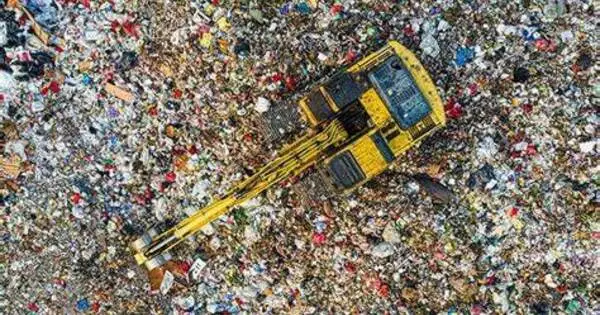The international trade of waste between countries for further treatment, disposal, or recycling is known as the global waste trade. It refers to the international transportation of waste between countries. This trade involves the export and import of various waste types, such as recyclables, hazardous waste, and electronic waste. Toxic or hazardous wastes are frequently imported from developed countries by developing countries. The reasons for such trade vary, but can include economic considerations, environmental concerns, and regulatory differences between countries.
According to the World Bank Report What a Waste: A Global Review of Solid Waste Management, the amount of solid waste produced in a given country is described. Countries that generate more solid waste are more economically developed and industrialized. According to the report, “Generally, the higher the economic development and rate of urbanization, the greater the amount of solid waste produced.” As a result, countries in the Global North, which are more economically developed and urbanized, generate more solid waste than countries in the Global South.
Key points regarding global waste trade include:
- Economic Incentives: Some countries export waste materials to others as a way to generate revenue or reduce the costs associated with waste disposal. Importing countries may benefit from cheaper raw materials or recycling processes.
- Environmental Impacts: Global waste trade can have environmental implications. Sending waste materials to countries with less stringent environmental regulations may result in improper disposal or recycling practices, leading to pollution and ecological damage.
- Recycling: Recycling is a major component of global waste trade. Developed countries often export recyclable materials to developing nations, where they may be processed and recycled. However, this process can sometimes lead to environmental and health hazards if not managed properly.
- Illegal Dumping: The global waste trade has been linked to illegal dumping and improper disposal practices in some cases. Concerns have been raised about the environmental and health consequences for receiving countries.
- Regulations and Agreements: Various international treaties and regulations aim to govern and control the global waste trade. The Basel Convention, for example, governs transboundary movements of hazardous waste and aims to reduce the environmental and health consequences of such trade.
Current international waste trade flows follow a pattern in which waste is produced in the Global North and exported to and disposed of in the Global South. Geographic location, degree of industrialization, and level of integration into the global economy are all factors that influence which countries produce waste and how much waste they produce.
















